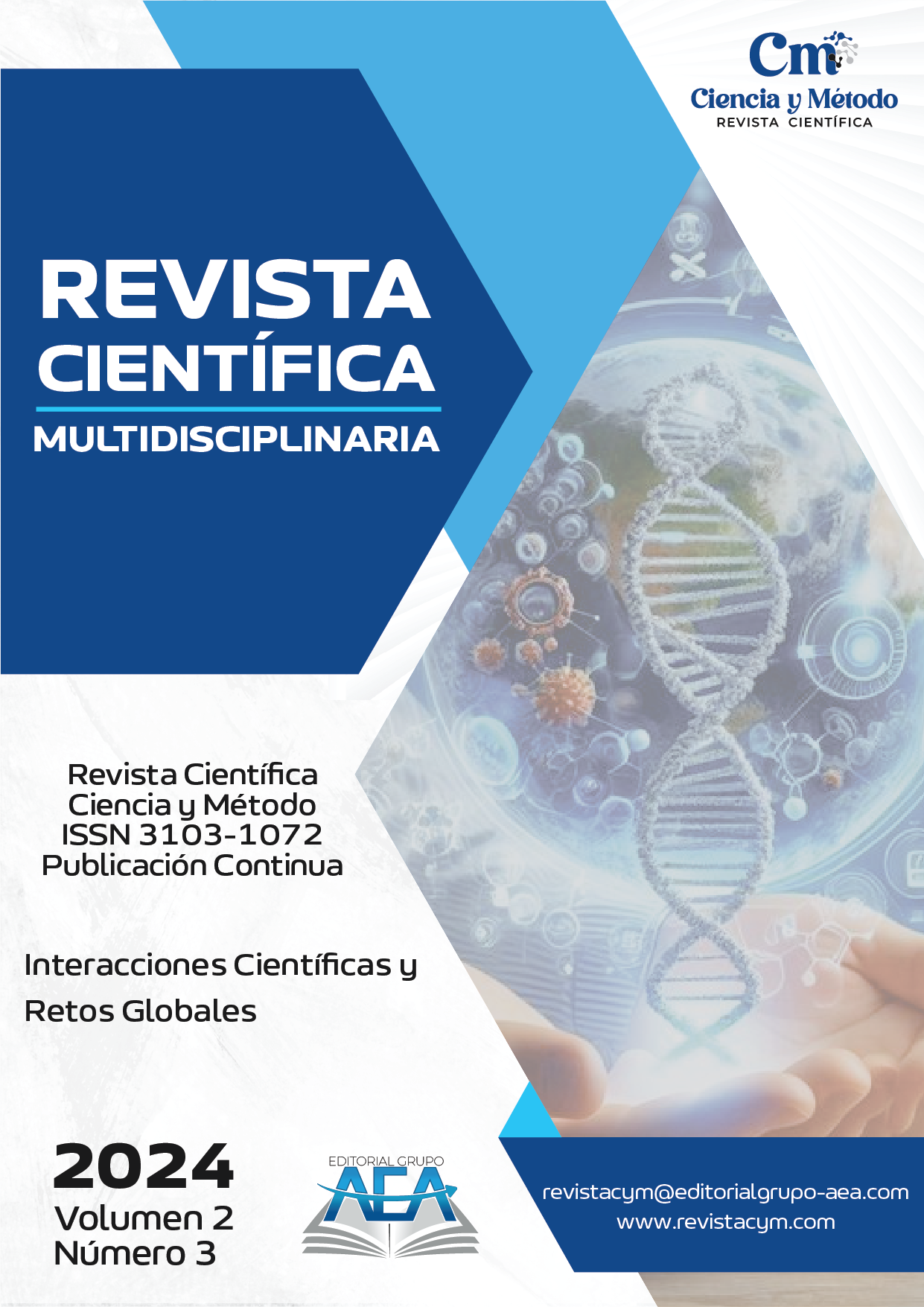Digital transformation in internal audit and its effect on operational efficiency
Main Article Content
Abstract
The research systematically examines recent literature on digital transformation in internal audit and its effect on operational efficiency, considering that the adoption of technologies such as big data, artificial intelligence and robotic automation redefines traditional control methods. Under an exploratory qualitative approach, a review of publications indexed between 2015 and 2024 in Scopus, Web of Science and ScienceDirect was conducted, prioritizing empirical studies and systematic reviews. The results show that digitization increases the speed and accuracy of data analysis, reduces operating costs and strengthens the timely detection of risks, contributing to a more proactive and strategic audit. However, significant barriers remain, such as cultural resistance to change, lack of technological skills among auditors and integration problems with legacy systems, which limit the impact of these tools. The discussion underlines that the success of digital transformation does not depend only on technological investment, but also on a comprehensive management that combines leadership, innovation culture and continuous training. It is concluded that digitalization represents a strategic opportunity to strengthen the audit function, provided that organizational barriers are addressed in a coordinated manner.
Downloads
Article Details
Section

This work is licensed under a Creative Commons Attribution-NonCommercial 4.0 International License.
How to Cite
References
Alles, M. G. (2020). The potential and pitfalls of the fourth wave of the digital revolution: Accounting and auditing challenges from big data and machine learning. Accounting Horizons, 34(4), 1–20.
Appelbaum, D., Kogan, A., & Vasarhelyi, M. A. (2017). Big data and analytics in the modern audit engagement: Research needs. Auditing: A Journal of Practice & Theory, 36(4), 1–27. DOI: https://doi.org/10.2308/ajpt-51684
Casanova-Villalba, C. I., Herrera-Sánchez, M. J., & Almeida-Blacio, J. H. (2024). Aplicaciones de inteligencia artificial en la auditoría financiera contemporánea. Revista Científica Ciencia Y Método, 3(2), 30-43. https://doi.org/10.55813/gaea/rcym/v3/n2/3 DOI: https://doi.org/10.55813/gaea/rcym/v3/n2/3
Casanova-Villalba, C. I., Navarrete-Ortiz, J. D. C., & Concha-Ramirez, J. A. (2024). Blockchain y su aplicación en la contabilidad un análisis del estado del arte sobre sus beneficios y limitaciones. Innova Science Journal, 2(4), 27-38. https://doi.org/10.63618/omd/isj/v2/n4/46 DOI: https://doi.org/10.63618/omd/isj/v2/n4/46
Clavijo-Cáceres, J. L., Hurtado-Guevara, R. F., Casanova-Villalba, C. I., & Estefano-Almeida, M. A. (2024). El impacto de la inteligencia artificial en decisiones administrativas basado en revisión de literatura científica. Multidisciplinary Collaborative Journal, 2(1), 39-51. https://doi.org/10.70881/mcj/v2/n1/30 DOI: https://doi.org/10.70881/mcj/v2/n1/30
Coello-Zavala, N. J., & Concha-Ramírez, J. A. (2024). Análisis de la incidencia de la IA aplicada en el asesoramiento financiero y tributario de 2020-2024 . Journal of Economic and Social Science Research, 5(1), 245–264. https://doi.org/10.55813/gaea/jessr/v5/n1/175 DOI: https://doi.org/10.55813/gaea/jessr/v5/n1/175
Herrera-Sánche, M. J., Casanova-Villalba, C. I., & Ruiz-López, S. E. (2023). Adaptación de las normativas de auditoría frente a los avances tecnológicos emergentes. Revista Científica Ciencia Y Método, 1(3), 1-15. https://doi.org/10.55813/gaea/rcym/v1/n3/16 DOI: https://doi.org/10.55813/gaea/rcym/v1/n3/16
Herrera-Sánchez, M. J., & Casanova-Villalba, C. I. (2024). Inteligencia artificial y su impacto en la transformación de la gestión financiera. Space Scientific Journal of Multidisciplinary, 2(1), 52-64. https://doi.org/10.63618/omd/ssjm/v2/n1/43 DOI: https://doi.org/10.63618/omd/ssjm/v2/n1/43
Herrera-Sánchez, M. J., Casanova-Villalba, C. I., Concha-Ramirez, J. A., & López-Pérez, P. J. (2024). Impacto de la inteligencia artificial en los procesos de auditoría contable. Innova Science Journal, 2(1), 1-14. https://doi.org/10.63618/omd/isj/v2/n1/28 DOI: https://doi.org/10.63618/omd/isj/v2/n1/28
Herrera-Sánchez, M. J., Casanova-Villalba, C. I., López-Pérez, P. J., & Almeida Blacio, J. H. (2024). Transformaciones digitales en auditoría bajo entornos de riesgo creciente. Space Scientific Journal of Multidisciplinary, 3(2), 14-27. https://doi.org/10.63618/omd/ssjm/v3/n2/47 DOI: https://doi.org/10.63618/omd/ssjm/v3/n2/47
Hurtado-Guevara, R. F. (2024). Impacto de la Automatización en la Auditoría: Ventajas y Desafíos. Revista Científica Zambos, 3(3), 30-43. https://doi.org/10.69484/rcz/v3/n3/56 DOI: https://doi.org/10.69484/rcz/v3/n3/56
Hurtado-Guevara, R. F., Almeida-Blacio, J. H., & López-Pérez, P. J. (2023). Desafíos éticos en la adopción de tecnologías emergentes en contabilidad. Revista Científica Ciencia Y Método, 1(2), 29-42. https://doi.org/10.55813/gaea/rcym/v1/n2/13 DOI: https://doi.org/10.55813/gaea/rcym/v1/n2/13
Kokina, J., & Davenport, T. H. (2017). The emergence of artificial intelligence: How automation is changing auditing. Journal of Emerging Technologies in Accounting, 14(1), 115–122. https://doi.org/10.2308/jeta-51730 DOI: https://doi.org/10.2308/jeta-51730
Pham, H., Moorthy, M., & Moorthy, K. (2021). Digital transformation in internal auditing: A systematic literature review. Journal of Accounting Literature, 46, 1–19.
Pilay-Asunción, D. D., & Marcos-Rodriguez, K. L. (2024). Los desafíos tecnológicos y el rol del contador en la automatización de procesos contables. Journal of Economic and Social Science Research, 5(1), 306–329. https://doi.org/10.55813/gaea/jessr/v5/n1/178 DOI: https://doi.org/10.55813/gaea/jessr/v5/n1/178
Roussy, M. (2013). Internal auditors’ roles: From watchdogs to helpers and protectors of the top manager. Critical Perspectives on Accounting, 49, 60–73. https://doi.org/10.1016/j.cpa.2013.08.004 DOI: https://doi.org/10.1016/j.cpa.2013.08.004
Youssef, N. H., Leung, P., & Abdel-Kader, M. (2021). Digitalization and internal audit effectiveness: Evidence from the UK public sector. International Journal of Accounting Information Systems, 40, 100498.





